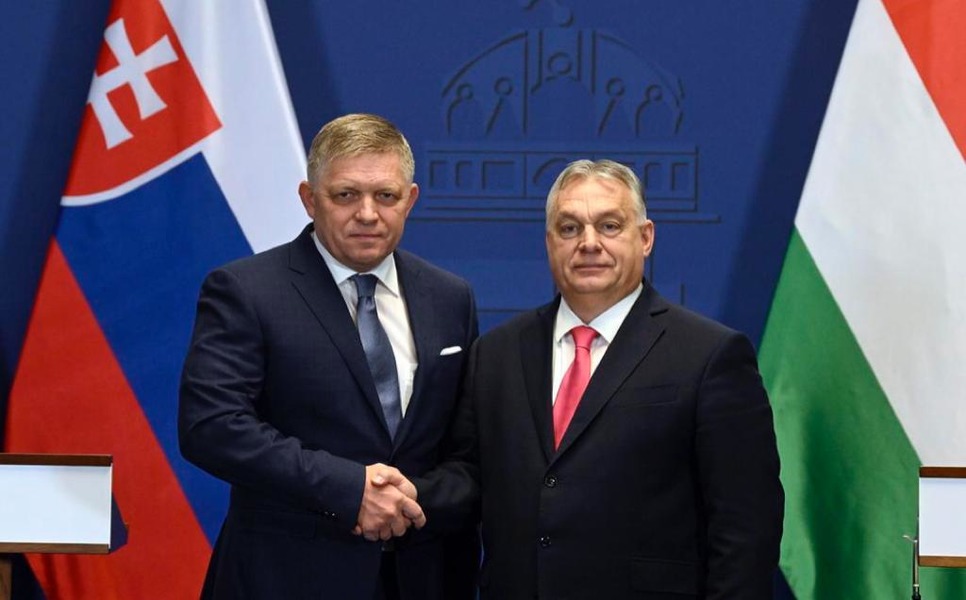The recent statements of the leaders of Slovakia, Robert Fico, and Viktor Orbán, of Hungary, about the rejection of Ukraine’s accession to NATO and the refusal to support Ukraine at the state level in the face of Russian aggression have attracted the whole of Europe. This article is about the implications of their decisions for European security, their motives, and the broader context of Russia’s strategic goals.
Groundless blockade of Slovakia:
Slovak Prime Minister Robert Fico’s announcement that Slovakia intend to block Ukraine’s entry into NATO and renounce weapons at the state level is an unexpected refusal of further support of collective security in Europe. The argument that such a move is in the interests of European security in the face of a threat from the Russian Federation is paradoxical, as it seems to be more in line with Moscow’s agenda than strengthening European unity.
Hungary’s veto and Moscow’s favor:
Hungarian Prime Minister Viktor Orbán’s consistent opposition to Ukraine’s bid for NATO and EU membership, and his veto of a major aid package in December 2023, indicate a pro-Russian focus in Budapest’s foreign policy. This not only undermines the principles of solidarity within the European Union, but also calls into question Hungary’s commitment to regional stability.
Is this intentional facilitation or strategic vulnerability?
The official rhetoric of Bratislava and Budapest is perceived as a support of Russian President Vladimir Putin’s plan to divide and weaken the Western alliance. However, it is important to consider the historical and geographical factors that make these countries vulnerable to Russian influence. The illogic of their position may be a consequence of strategic vulnerability rather than an intentional betrayal of European interests.
Potential threats to the Baltic States:
While analysts and military experts debate the possibility of a Russian invasion of the Baltic states, the need for a united European front is becoming clearer. The Baltic states’ proactive actions in building defenses on their borders underlines growing concern about potential Russian aggression. European states must realize that supporting Ukraine is not just a matter of solidarity, but a strategic necessity for the protection of the entire continent.
Trojan horses of the Kremlin:
Fico and Orbán are portrayed as those people who help Putin weaken Europe by undermining its supranational institutions. Described as the “Trojan horses” of Europe, these leaders are accused of anti-Ukrainian rhetoric at the behest of the Kremlin. It means that Russia is using the contradictions in Europe to promote its own interests and weaken the continent from within.
Encouraging signals for Ukraine:
As the NATO Summit approaches, it is very important for Ukraine to receive strong signals of support. NATO Secretary General Jens Stoltenberg must confirm that the Alliance’s doors are opened for Ukraine, as the Putin-initiated war proves the urgency of NATO expansion. Such an expansion would not only strengthen the Alliance’s collective defense capability, but also send a clear signal that aggression against member states or aspiring states will not be tolerated.
The recent position of Slovakia and Hungary to Ukraine’s accession to NATO threatens the cohesion and stability of the European alliance. Regardless of whether they are motivated by strategic vulnerability or deliberate support of Moscow’s interests, these actions undermine the basis of collective security. As Europe faces potential threats from an aggressive Russia, a united front is essential. The upcoming NATO Summit is an opportunity for the international community to demonstrate solidarity, reaffirm its commitment to collective security, and resist the Kremlin’s attempts to take advantage of internal differences for its own geopolitical interests.

